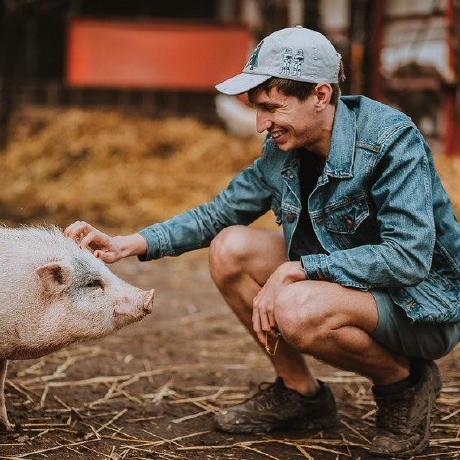Pants 2.8 adds Autoflake & Pyupgrade, Docker publishing, Golang, and Google Cloud Functions
Pants 2.8 adds Autoflake & Pyupgrade, Docker publishing, Golang, PEP 517 publishing, and Google Cloud Functions
We're pleased to announce Pants 2.8.0, the latest release of Pants, the scalable and ergonomic build system.
To update, set pants_version = "2.8.0" in your pants.toml. See upgrade tips, including a new update-build-files goal to automate some of the upgrade.
Autoflake and Pyupgrade
Pants now supports Autoflake and Pyupgrade, in addition to already supporting Black, isort, Flake8, Bandit, Docformatter, MyPy, Pylint, Yapf, Shfmt, and Shellcheck!
Autoflake removes unused imports automatically, and Pyupgrade modernizes your Python syntax to use new features like f-strings.
Before:
import os
name = "pantsbuild"
print("Hello %s!" % name)
After running ./pants fmt app.py with the tools enabled:
name = "pantsbuild"
print(f"Hello {name}!")
Publishing Docker images
Pants 2.7 added experimental Docker support, which gives you a single command to streamline deploying your Python applications with Docker.
Pants 2.8 expands its Docker support to include publishing images. Now, ./pants publish will first build the Docker image—including copying in any relevant PEX binaries, Python wheels, and files. Pants will then publish the image to the registries you specify.
$ ./pants publish src/docker::
14:41:51.98 [INFO] Built docker image: docker.registry.net:8181/test-example:1.2.5
The push refers to repository [docker.registry.net:8181/test-example]
7c521f914a2d: Layer already exists
...
62a747bf1719: Layer already exists
1.2.5: digest: sha256:961beb6126320d277ad4236f9f12694ad4e077a16f73b896b3292023007a002c size: 2428
✓ docker.registry.net:8181/test-example:1.2.5 published.
Pants 2.8 now also can run your Docker images with ./pants run, making sure that the image is first built with all your binaries and files copied into it.
Google Cloud Functions
Pants can now create a .zip file understood by Google Cloud Function, allowing you to develop your functions alongside the rest of your projects.
$ ./pants package project/google_cloud_function_example.py
Wrote code bundle to dist/project.zip
Runtime: python3.8
Handler: main.handler
This functionality uses the same technology that allows Pants to create AWS Lambda functions.
Experimental Golang support
Pants now augments Go's (already excellent!) tooling with these unique benefits:
- A consistent interface for all languages and tools in your repository.
- Integration with Git + advanced project introspection.
- Remote caching and execution.
- Unlike legacy build systems, these benefits all come with minimal boilerplate.
Check out our announcement post for more, and an example repository to try it out.
PEP-517 packaging support
As explained in a previous post, Pants can now act as a PEP 517 build frontend.
Pants has long had the ability to generate setup.py files for you, to streamline creating and managing distributions. Pants 2.8 extends this with support for PEP 517, the Python standard for specifying how distributions should be built.
Under this standard, you can specify a "build backend" in a pyproject.toml file, and Pants will install and invoke it appropriately. This means that Pants can now run any distribution build, including building native extensions via setup.py and building Poetry projects.
File-level metadata with overrides
Since Pants 2.0, Pants has operated at the file level. Unlike legacy build tools, Pants runs tests on individual files, for example, rather than "targets" (usually directories). Likewise, Pants understands metadata like your dependencies at the file level, which gives you fine-grained caching.
All this time, Pants has been dynamically generating one "target" per file, but we hid that from you. Now, we added new targets like python_test and python_source which correspond to individual files. You can manually create those, or let Pants generate the targets for you:
python_tests(
name="tests",
# Generates two `python_test` targets.
sources=["osutil_test.py", "dirutil_test.py"],
)
You can now easily override metadata at the file-level through a new overrides field:
python_tests(
name="tests",
overrides={
"dirutil_test.py": {"timeout": 10},
("osutil_test.py", "contextutil_test.py"): {
"dependencies": [":test_data"]},
},
)
That is, you get precise, file-level metadata. But without demanding the boilerplate of legacy tools like Bazel.
Impact to existing users
Improving this modeling required making some other changes:
- Some targets were renamed, like
python_librarytopython_sources. Run./pants update-build-filesto automatically update yourBUILDfiles. (The old names will still work in Pants 2.8.) conftest.pyno longer belongs to thesourcesofpython_testsby default. Instead, it belongs topython_test_utils. Run./pants tailorto automatically add these new targets../pants filter --target-typeand./pants peekboth now differentiate betweenpython_testsandpython_testtargets, for example. Usually you will want to update your scripts to usepython_testrather thanpython_testsand so on.- The command line arguments
dir:anddir::now include generated targets for project introspection goals likelistandpeek.
Other changes
- TOML dictionaries work for
dictoptions inpants.toml, e.g.
[tailor]
alias_mapping = { python_sources = "custom_python_sources", python_tests = "custom_python_tests" }
[tailor.alias_mapping]
python_sources = "custom_python_sources"
python_tests = "custom_python_tests"
- You can set up CLI aliases, like
./pants green ::being an alias for./pants fmt lint check ::
[cli.alias]
green = "fmt lint check"
[coverage-py].fail_underoption added to fail if Python test coverage is below a certain number.pex_binaryhas ascriptfield to allow setting console scripts, which allows running third-party dependencies.pex_binaryhas arestartablefield, which you can set so that Pants will restart the binary when input files have changed. This is particularly useful for auto-reloading Flask and Django servers, for example.- Added
--tailor-checkoption as a dry run for automatically adding new targets to your BUILD files. - Added
[tailor].ignore_pathsand[tailor].ignore_adding_targetsoptions to avoid adding targets that are false positives. - Added
./pants help toolsto list all tools installed by Pants, including their versions. typecheckis deprecated in favor ofcheck, which will run MyPy and compilation for languages like Go and Java.
See the full changelog for more changes.
Upcoming in Pants 2.9
We are continuing to work on language support: adding more Go features and getting Java/Scala into alpha/beta state.
We also plan to resume the redesign of Python lockfiles started with Pants 2.7's tool lockfiles.
--
Try out our example Python repository, and let us know what you think in Slack!
Thanks
Thanks to all the contributors to 2.8, including everyone who shared feedback on changes and who tested release candidates! Some shout-outs:
- Chris Williams for Google Cloud Functions.
- Andreas Stenius for Docker publishing and CLI aliases.
- Tom Dyas and Eric Arellano for Go support.
- Benjy Weinberger for PEP 517 support.
- Asher Foa for Pyupgrade.
- Patrick Lawson for Autoflake.
- Stu Hood for auto-reloading when a PEX binary changes.
- Nicolas Joseph, Siyan Beverly, Doug Jenkins, Anthony D'Silva, and Ken Howard for continual feedback on Go support + the ideas of
--tailor-checkand[tailor].ignore_paths.

